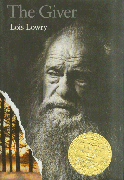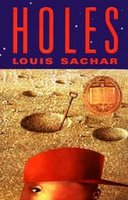A STEP FROM HEAVEN
 BIBLIOGRAPHY
BIBLIOGRAPHY Na, An. 2001. A STEP FROM HEAVEN. Read by Oh Jina. New York: Random House ISBN: 0-8072-1612-7 Reading level: age 12 to UP
PLOT SUMMARY
Young Ju’s family left 'Han Kook’ (Korea in English) for ‘Mi Gook’ (The United States in English) when she was four years old. 'Mi Gook' looked like heaven to Young Ju, but as time went by, she realized that the life in the United States was far from being in a heaven. Apa (Young Ju’s dad in English) had to work hard to earn a small amount of money, and had a hard time understanding and speaking English. Even worse, as 'Park Joon Ho’ (Young Ju’s younger brother), was born, a burden was added to the family to raise him. Although Apa and Uhmma (Young Ju’s mom) had several jobs to improve their life, their financial status didn't get better. Uhmma sacrificed herself to her family, and as Young Ju said in the book, 'Uhmma's hands worked hard to make sure our hands would not resemble hers.' Apa, represented as a typical authoritarian Korean dad, felt frustrated as his American dream rarely came true although he worked hard and did his best. Finally he became addicted to alcohol. Even worse, the family got a call from Korea that Apa’s mother, Halmoni had been passed away, but the family couldn’t go to Korea because of the high airfare. Apa was becoming violent to his family, and Young Ju witnessed that he often beated Uhmma. Apa even beated Youn Ju severely during her playing with Amanda, her best friend who he disliked. Uhmma shouted Apa saying “you were going to kill her!...Worthless dog! Hoodlum! Drunken bastard!” And Uhmma got slammed by Apa. Threatened by Apa, Young Ju called 911 to get some help, and Apa arrested by the police. Several days later, Young Ju heard from Uhmma that Apa decided to go back to Korea. But, Young Ju, Joon Ho, and Uhmma did’t go with him. They moved to new home, and started a new life without daddy.
CRITICAL ANALYSIS
This book is the first work of An Na and won the Michael L. Printz Award in 2002 which is for excellence in literature for young adults. The author was born in Korea and is the daughter of an immigrant, so she was able to employ some direct experiences from her life and surroundings. This story represents all families who migrate from Korea to the United States for a better life. The description of the conflicts and hardships in the book is so vivid that readers may share the feelings of the characters. Especially, the protagonist, Young Ju was struggled to find her identity in America as a Korean-American is sympathetic to young adults in similar situation. This book is read by Jina Oh in a first person narrative, and according to the cover of the CD, she has been appeared in numerous regional stage productions and on television in Sex and the City and One life to Live. Her voice is very stable and calm, but she tries to use various tones of voice for each characters. As a Korean, she is the best narrator in the pronounciation of many Korean words such as 'Apa' 'Uhmma', and 'Ahjimma.' The unabridged version of this audiobook has 4 CDs playing 4 hours and 14 minutes. If there were sound effects or background music for the climactic scenes, it would be perfect.
REVIEW EXCERPTS
Publishers Weekly (February 4, 2002)
Oh's appropriately girlish voice and measured reading bring to life Young Ju, quiet heroine of debut novelist Na's dark tale of a family of Korean immigrants, which just won the ALA's Printz Award for teenage literature. At age four, Young Ju is not happy to be leaving her Korean home and loving Halmoni (grandmother) to move with her parents to Mi Gook (America), believed to be the land of great promise. Through Young Ju's experiences, listeners hear the family unravel as difficulties mount for them in the States. Young Ju's parents struggle with several low-paying jobs, handicapped by their language barrier. Young Ju's alcoholic and bitter father abuses his wife and children and forbids Young Ju to socialize with American friends. And when her father crosses a frightening line in his cruelty, Young Ju bravely takes action that sets her mother, younger brother and herself on the path to yet another new life in America. Oh's characterization, which realistically captures this powerful contemporary story and gives authentic crispness to Korean words and phrases, will keep listeners in its grip. Ages 12-up. (Jan.) Copyright 2001 Cahners Business Information.
Horn Book Guide (October 1, 2001)
Young Ju tells of her family's immigration from Korea to the United States and their subsequent struggles in a new country. The brief chapters have the intimacy of snapshots, and images of reaching and dreaming poignantly convey Young Ju's desire to survive her father's brutality. Mother and daughter exhibit a quiet strength; similarly, each of these vignettes displays an astonishing and memorable force. Copyright 2001 of The Horn Book, Inc. All rights reserved.
CONNECTIONS
*Discussion lists
-What is the meaning of Heaven in this book? Think about your heaven.
-As a immigrant, what kinds of problems the Park family are suffering from?
-Think about the image of the book cover. If she is Young Ju, why the half of the face covered with fabric?
-If you were Young Ju, what would you do when her father beats Young Ju and her mother.
*Books of Immigration for YA
Atwell, Debby. The Thanksgiving Door. ISBN: 0-618-77124-7
Gallo, Donald R (Editor). First Crossing: Stories about Teen Immigrants ISBN: 0-7636-3291-0
Hobbs, Will. Crossing the Wire. ISBN: 0-06-074140-6
Saturen, Myra. Journey to a New World: Mystic River of the West. ISBN: 0-88092-495-0
*Books of Korea Society
Kubota, Makota. South Korea. ISBN: 1-55532-168-2
Yi, David Korean Youths Lost in America. ISBN: 1-58244-102-2


